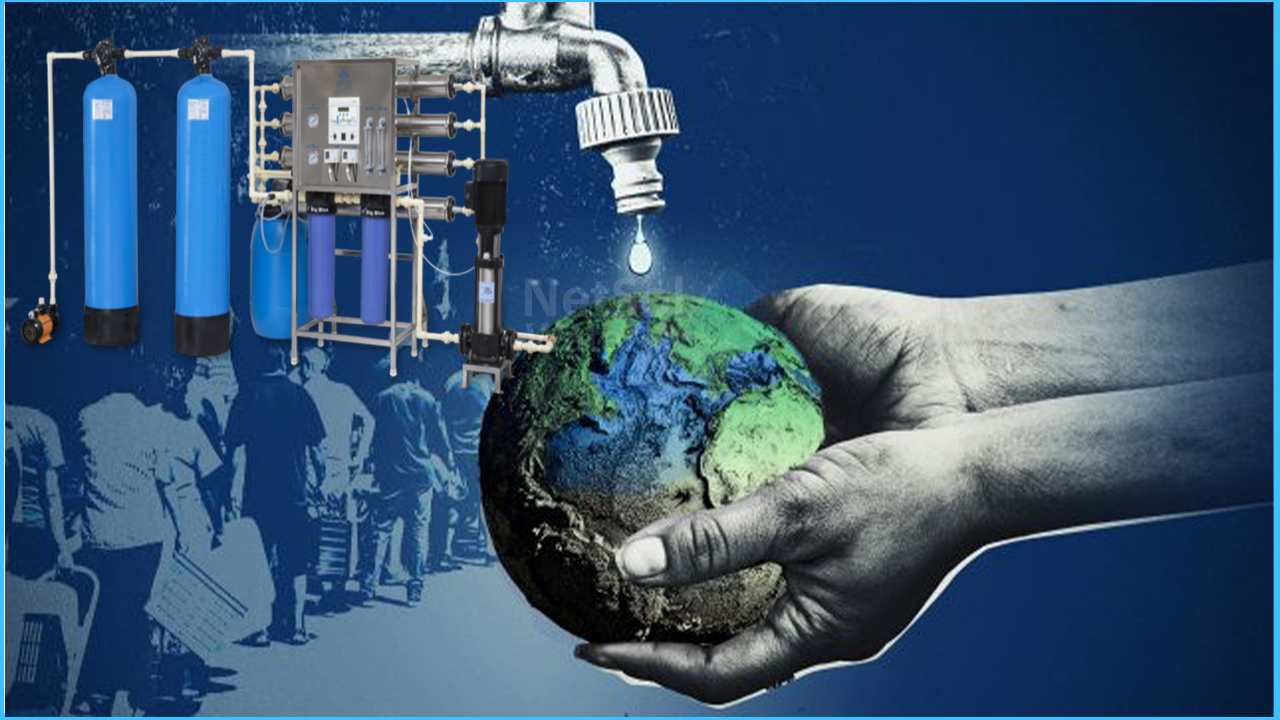Water Crisis in World
The United Nations has set a water standard of 5.3 to 13.5 gallons per person per day. Unfortunately, this is not the case for many people around the world, as the water crisis can upset the world's balance. This basic thing can create cracks even among communities and governments around the world, but it is usually overlooked. Shortages have serious economic, environmental and health consequences.
RO in combating persistent water crisis of the world
Reverse osmosis has a long way to go to help solve the global problem of the water crisis. Millions of people do not have access to safe drinking water sources every day. Thousands die every day due to shortages and quality issues. We strive every day to make it a problem, but the truth is that this crisis we know today is certainly expanding. Despite the announcement of news and awareness campaigns, this topic does not seem to have received enough feedback to get the right response from the world.
This is also because there is usually only one flaw associated with it. With advanced seawater desalination technology, it now seems to be popular with the masses that the crisis may no longer be a problem. The use of the ocean and the oceans to ensure that everyone has enough clean drinking water has distracted from the root cause. However, toeliminate the crisis, it is important to understand the root itself and remove it. This won't happen if more people aren't aware of how dramatic the results will be in the immediate vicinity. Here are just a few examples.
Limitation
The use of ROitself is restricted not only to industrial manufacturers, businesses and commercial enterprises, but also to individual households. Poor communities with unstructured homes were first denied access to clean water. Due to the restrictions, the lifestyle must be turned down and even buying it may be a luxury. Controlled water use can lead to compromises in several other areas. On the contrary, water storage devices can be booming, which is not the right reason.
No incentive
Excessive limits can cause another major problem. Restrictions on horticultural and green activities affect afforestation initiatives. These include programs that transform barren land into forests, or even agricultural purposes. This controlled use does not encourage the community to focus on good tree planting on the planet. Priority is limited to consumption and use for the needs you need.
Environmental issues
The risk of fire is high because it is not available. Pollution of rivers, lakes and streams leads to ecosystem imbalances. Persistent global warming will melt glaciers and ice caps, raising sea levels and temperatures, which will further exacerbate shortages. And, as mentioned earlier, the lack of afforestation initiatives can further disrupt the planet, as parts of the land will be drought or flooded.
Economic Crisis
Prices will rise significantly. Something less important than clean drinking water can disrupt the stock market and create a monopoly in the industry that sells the rest of the water. It is becoming a luxury item that can support criminal activity. Farmers will not be able to grow important crops in drought-stricken areas. The lack of organic products for import and export between countries can lead to a terrible collapse of the economy and even the nations involved in war.
Opposition to progress
Lack of access to clean water will kill people from chronic water-borne infections and severely hinder the spread of education in these areas. When the government is in turmoil, all other responses are to make water available, so the focus on advanced research, construction and development will soon be demolished. An organized world can be potentially at risk.
These problems are just the tip of the iceberg, and there is not much to say about when and how the water crisis hits us all. The good news is that new solutions are being proposed daily to avoid the above results. But it doesn't change overnight, and everyone is responsible for their role in saving water. We highly recommend initiatives launched directly from home to the community. From turning off the faucet to the shower head, to using a bucket instead of a tub and shower, everything can create a world of difference. Tax cuts as an incentive for people to invest in green projects, on the other hand, will be a good start for governments around the world. Not to mention the daily public projects that support nature maintenance, it can be of great help in giving future generations a better chance of future survival.




